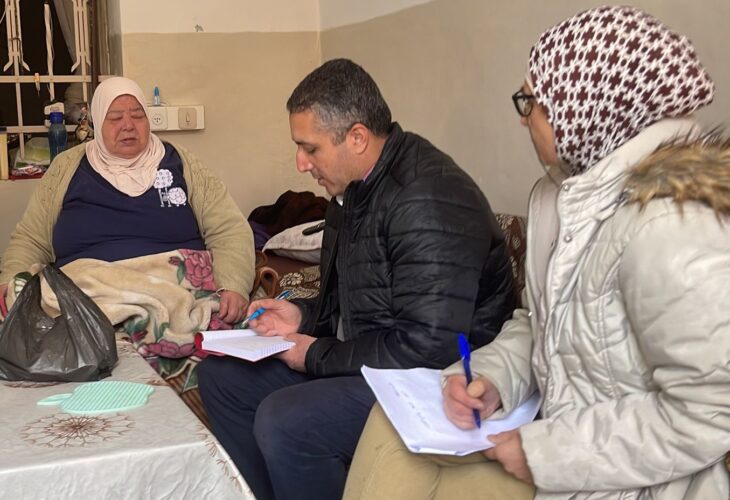Close
Contact us
Our address
- Ramallah - Al-Masyoun - Yabous Building, 4th floor
- +97022966407
- [email protected]
The Elderly Home Care Project (the first of its kind in Jerusalem )
- Home >
- Our Projects >
- The Elderly Home Care Project (the first of its kind in Jerusalem )


